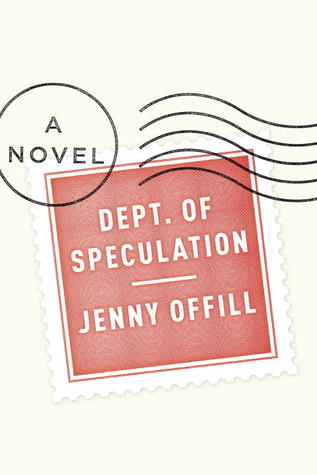 DH: 1Q84 has an improv quality that I think not all readers will give it credit for. Oh I know, all novels are a riff of words by their authors. But especially in the case of 1Q84, Murakami set up an elaborate narrative outline in advance but then allowed himself free play with a high degree of self-confidence that the results would be splendid.
DH: 1Q84 has an improv quality that I think not all readers will give it credit for. Oh I know, all novels are a riff of words by their authors. But especially in the case of 1Q84, Murakami set up an elaborate narrative outline in advance but then allowed himself free play with a high degree of self-confidence that the results would be splendid.
Someday, a graduate student will do a catalog of every cultural reference in the book: every Hollywood movie, every piece of music high or low, every pop culture reference, writer, philosophical and religious concept that Murakami has included and form a snapshot of Murakami’s brain. Because, never before, has M included so many references to the culture that has intrigued him.
We’ve all had long talks like that with our friends over dinner or a beer. It’s as if, by reading 1Q84, you can have such a talk with its author. Such is the impression that his art conveys and I think it’s deliberate, an intended feature of the novel. But it’s like Central Park. It looks natural, like it just grew there, but it’s all the result of an assiduous cultivation.
Whole sections of the novel, like Tengo’s trip the the seaside town where his father is dying, the cat town, surface in the story, move the reader with their heartfelt characters, like the three nurses who are compared to the three witches in Macbeth (only benign), then sink beneath the waves of the 900 plus pages plot.
The town of cats, which is a paradigm of the whole narrative, represents the wrong turn we shouldn’t want to take, like those dispirited renters who leave Tengo’s apartment building in the morning for work, already looking exhausted and defeated even though their day is just getting started.
The town of cats has been deserted by it’s people, or the residents have been eliminated somehow. By day, the town is abandoned and sterile. But at night, giant cats occupy the town and mimic the behavior of the citizens who once led their lives there. Tengo visits that town. His friends warn him that he must leave as soon as possible. For humans who visit the town of cats for too long are never allowed to leave.
JC, my very good friend, I feel like the dowager who is so inconsolable at the end of the novel that she refuses to come to the phone, and so leaves the novel that way, by refusing to talk.
I won’t come to the phone, JC. Let’s leave it there. My discussion is over. But tell us how you felt about the conclusion of this novel. And I certainly hope you’ll say something heartfelt about our friends Tengo and Aomome and maybe mention that other oddly shaped guy. Little people, anyone?
JC: I’m not going to talk about the little people, Dennis. I think that’s something the reader just has to engage on his own. There are a number of changes in the world 1Q84 vis a vis the real world 1984 that simply evade explanation, and as Tengo’s father states from his Alzheimer’s cloud:
If you can’t understand it without an explanation, then you won’t understand it with an explanation.
So readers can explore it on their own and decide whether they understand it or not.
I won’t give any spoilers about the end, either, but I’ll say it felt inevitable. It couldn’t have ended any other way. I mean that positively. I’ve completed books, as have we all, and said “damn, I knew that was going to happen” and I’ve read very remarkable books and seen the conclusion far off and loved every second. 1Q84 is a big leisurely unwinding of a conclusion that seems like an incontrovertible fact. Like watching an ocean liner come in. You can see it for ages before it arrives, but it’s still impressive when it gets there.
I like the occasions when Murakami particularly leans into the story to force a point on reality or epistemology or fate. They’re rare: the cab driver, the dying father, Leader, the near miss viewing of the lovers – but they are such pointed, clarifying insights to the bigger picture that you doubletake.
As for our bobbleheaded friend Ushikawa, DH, his exit was disappointing. I thought his role as the newly-formed third narrative subject projected a larger role and a less ignominious end. He’s found his own cat town, I suppose.
As a sort of wrapup, in the end 1Q84 is a paradox of fate and choice wrapped in a semi-fantastic love story. Murakami’s characters are forced into situations that are supposedly predetermined to end a certain way, and they have to go outside their habitual behavior to change those inevitabilities. It’s complex, but it should be.
I think not everyone will like this as we did, Dennis. It’s a good book to read with a companion, if you can match each other’s speed, but it requires a lot of patience, and it benefits, I think, from the dinner and drinks conversation to which you alluded earlier. When you’re through emulating the dowager, we’ll do that. jc.








JC, I like your comments very much. It’s a very apt assessment of an extremely complex, yet fascinating story.
I’m busy building an air chrysalis right now. I will let you know how it turns out.
I bought Rosetta Stone as a gift and have heard nothing but great things about it. It was easy and simplified learning. ==
http://www.hellorosettastone.com/